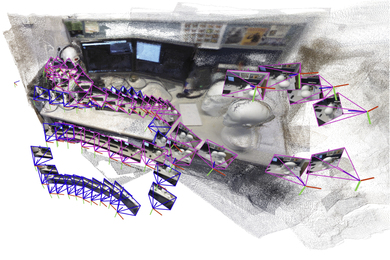Since MIT OpenCourseWare was launched in 2001, millions of people from around the world have accessed OCW content to further their education. This series of occasional articles examines the ways in which OCW is making a difference in the lives of its users.
When Megan Brewster, a recent materials sciences BS graduate of the University of Washington, arrived in Guatemala to begin volunteer work for the non-profit Appropriate Infrastructure Development Group (AIDG), she immediately wished she’d brought her old textbooks with her.
AIDG was trying to develop a small-scale plastics recycling program to address the problem of the disposable water bottles that littered the Guatemalan countryside. With no budget for consultants or access to a library, Brewster found herself without the information she needed to design the recycling protocol.
Initially, she turned to Wikipedia for an overview of the possible processes, but she needed information that was more in-depth and developed by experts in the field. Then she remembered MIT OpenCourseWare. Through OCW, she was able to find the information on polymers, casting and injection molding she needed to complete the protocol.
“I returned to OCW again and again for information on plastics, recycling technologies, water filtration and more. The project was a success, and we could not have done it without OCW,” says Brewster. After volunteering in Guatemala, Brewster came to MIT to pursue graduate studies in materials science and engineering.
When Megan Brewster, a recent materials sciences BS graduate of the University of Washington, arrived in Guatemala to begin volunteer work for the non-profit Appropriate Infrastructure Development Group (AIDG), she immediately wished she’d brought her old textbooks with her.
AIDG was trying to develop a small-scale plastics recycling program to address the problem of the disposable water bottles that littered the Guatemalan countryside. With no budget for consultants or access to a library, Brewster found herself without the information she needed to design the recycling protocol.
Initially, she turned to Wikipedia for an overview of the possible processes, but she needed information that was more in-depth and developed by experts in the field. Then she remembered MIT OpenCourseWare. Through OCW, she was able to find the information on polymers, casting and injection molding she needed to complete the protocol.
“I returned to OCW again and again for information on plastics, recycling technologies, water filtration and more. The project was a success, and we could not have done it without OCW,” says Brewster. After volunteering in Guatemala, Brewster came to MIT to pursue graduate studies in materials science and engineering.






